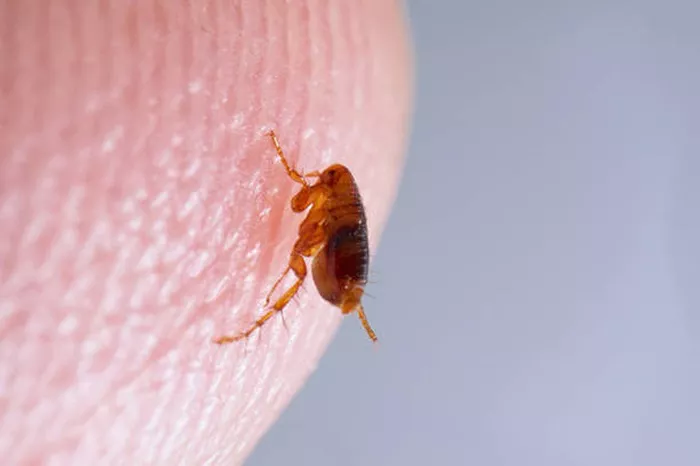Fleas are a common nuisance, especially for pet owners. They cause discomfort and health issues for both animals and humans. People often seek effective methods to eradicate fleas, leading to some unconventional solutions. One such solution that has been discussed is the use of diesel fuel. This article explores whether diesel fuel can kill fleas, its effectiveness, safety concerns, and alternative flea control methods.
Understanding Fleas
Lifecycle of Fleas
Fleas undergo four stages in their lifecycle: egg, larva, pupa, and adult. Understanding this lifecycle is crucial for effective control measures.
Eggs: Fleas lay their eggs on the host, which then fall into the environment. These eggs hatch within a few days.
Larvae: The hatched larvae feed on organic debris and flea feces. They are light-sensitive and tend to hide in dark places.
Pupae: Larvae spin cocoons and enter the pupal stage. Pupae can remain dormant for months until conditions are favorable.
Adults: Adult fleas emerge from the pupae and seek a host to feed on. They start the cycle anew by laying eggs.
Flea Infestations
Flea infestations can escalate quickly due to their rapid reproduction. An understanding of their preferred environments and behaviors can aid in their control.
Hosts: Common hosts include pets like dogs and cats, but fleas can also bite humans.
Environment: Fleas thrive in warm, humid environments. Carpets, bedding, and furniture are typical hotspots.
Health Impact: Flea bites cause itching and allergic reactions. Fleas can also transmit diseases like tapeworms and Bartonella.
Diesel Fuel as a Flea Killer
Mechanism of Action
Diesel fuel can theoretically kill fleas through suffocation and toxic exposure. The oily nature of diesel can coat the fleas and disrupt their respiratory system, leading to death.
Suffocation: Fleas breathe through spiracles. Diesel can block these openings, causing suffocation.
Toxicity: Diesel fuel contains hydrocarbons that are toxic to fleas. Contact with diesel can poison fleas and lead to their death.
Effectiveness
While diesel fuel might kill fleas upon direct contact, its overall effectiveness as a flea control method is questionable.
Limited Reach: Diesel fuel needs to come into direct contact with fleas to be effective. It cannot reach fleas hidden in crevices or deep in carpets.
Non-Residual: Diesel does not provide residual control. It kills fleas present at the time of application but does not prevent future infestations.
Incomplete Control: Diesel might kill adult fleas, but it is unlikely to affect eggs, larvae, and pupae, which are critical stages in the flea lifecycle.
Safety Concerns
Using diesel fuel for flea control raises significant safety and environmental concerns.
Toxicity to Pets and Humans: Diesel fuel is toxic to animals and humans. Skin contact can cause irritation and systemic toxicity. Inhalation of fumes can lead to respiratory issues.
Fire Hazard: Diesel is flammable. Applying it in homes, especially near ignition sources, poses a fire risk.
Environmental Impact: Diesel can contaminate soil and water, harming plants and wildlife. Its use indoors can lead to indoor air pollution.
See also: Is Heating Oil Diesel Fuel?
Alternative Flea Control Methods
Chemical Treatments
Several chemical treatments are specifically designed for flea control. These are safer and more effective than diesel fuel.
Flea Sprays: These contain insecticides that kill fleas on contact and provide residual control.
Flea Collars: Flea collars release active ingredients that repel and kill fleas over an extended period.
Spot-On Treatments: These are topical treatments applied to pets’ skin, providing long-lasting protection against fleas.
Natural Remedies
Natural remedies can also help control fleas without the risks associated with diesel fuel.
Diatomaceous Earth: This natural powder dehydrates and kills fleas by damaging their exoskeletons.
Essential Oils: Oils like lavender, eucalyptus, and tea tree can repel fleas. However, they must be used with caution as some can be toxic to pets.
Vinegar: A mixture of vinegar and water can act as a flea repellent and can be sprayed on pets’ coats and bedding.
Environmental Control
Effective flea control requires addressing the environment to break the flea lifecycle.
Vacuuming: Regular vacuuming removes flea eggs, larvae, and adults from carpets and furniture.
Washing Bedding: Frequently washing pet bedding in hot water kills fleas and their eggs.
Yard Maintenance: Keeping the yard clean and free of debris reduces flea habitats. Applying nematodes to the soil can naturally reduce flea populations.
Conclusion
Using diesel fuel to kill fleas is neither safe nor effective. While it might kill some fleas upon direct contact, it poses significant health and safety risks to humans and pets. Diesel fuel is also harmful to the environment.
Instead, opt for safer and more effective flea control methods. Chemical treatments, natural remedies, and environmental control can provide comprehensive flea management. By addressing all stages of the flea lifecycle and maintaining a clean environment, you can effectively control flea infestations without resorting to hazardous substances like diesel fuel.
Final Thoughts
Fleas are a persistent problem, but with the right approach, they can be managed effectively. Always prioritize safety and choose methods that are both effective and non-hazardous. Consult with a veterinarian for the best flea control options for your pets, and remember that prevention is key to keeping your home and pets flea-free.
Related topics:
Will Diesel Fuel Ruin a Gas Engine?

